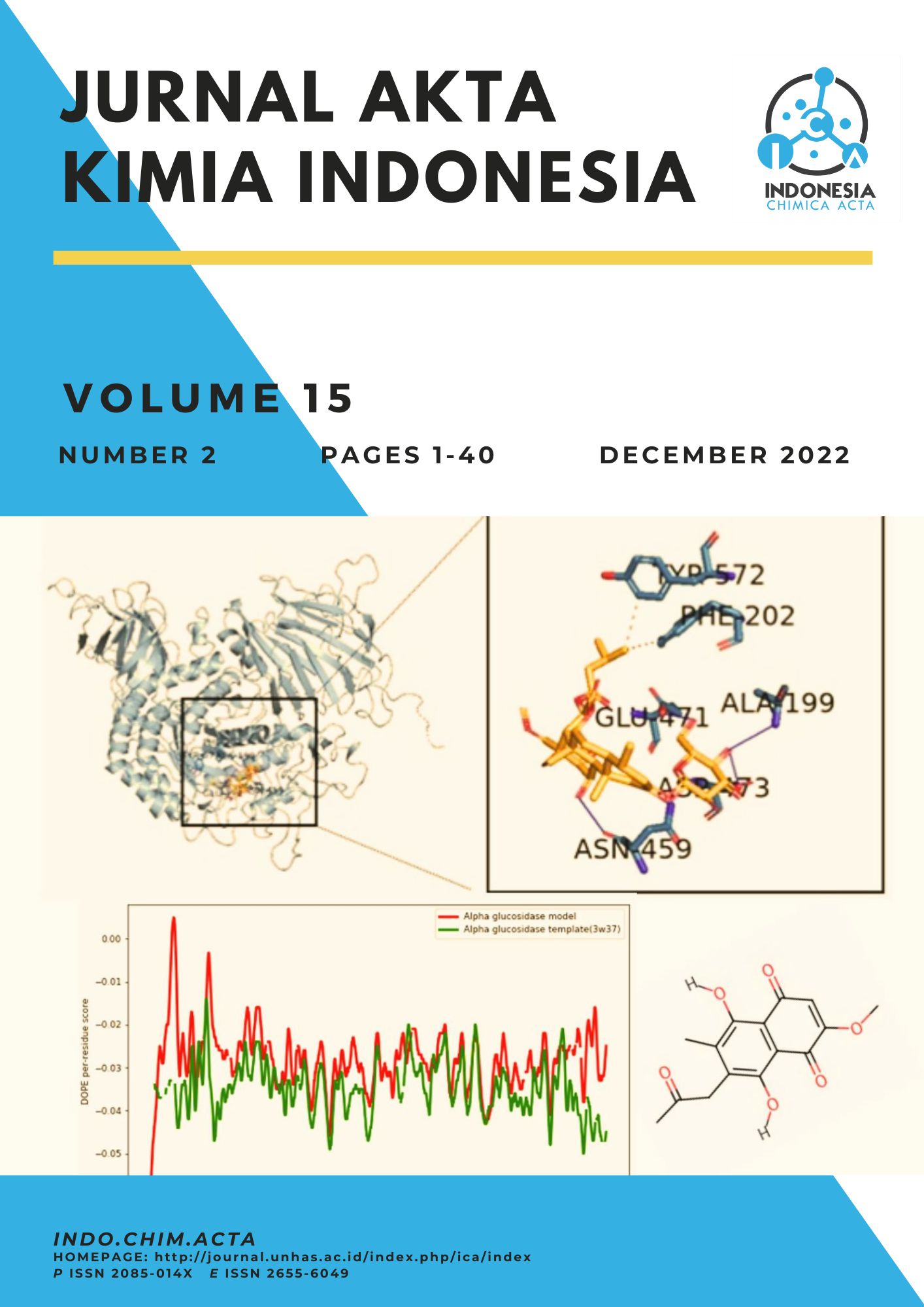Pharmacology Analysis of The Active Compound of Makassar Fruit (Brucea Javanica) as Antidiabetic Via Bioinformatics Approach
Abstract
Diabetes is one of the emergency diseases worldwide due to the large case each year. Therefore, searching the potential treatment become crucial to treating the disease. In this research, homology modeling and molecular docking were employed to analyze the active compounds of Makassar fruit (Brucea javanica) as antidiabetic. Alpha glucosidase (AG) is used as a target, and the ligands are javanicin and javanicisode B, both active molecules of Brucea javanica. According to molecular docking results, all ligands have the potential to bind to the receptor because of their negative energy scores. Also, javanicin has higher binding energy (-8.0 kcal/mol) than the control (-5.7 kcal/mol). Furthermore, hydrogen bonds and hydrophobic interactions allow these two active chemicals to attach to an important location on AG. Thus, our finding implied that two active compounds of Brucea Javanica could be inhibitors for the receptor, and javanicin may become a promising drug against diabetes.
Full text article
Authors
Copyright (c) 2022 Arwansyah Arwansyah

This work is licensed under a Creative Commons Attribution-ShareAlike 4.0 International License.
This is an open access journal which means that all contents is freely available without charge to the user or his/her institution. Users are allowed to read, download, copy, distribute, print, search, or link to the full texts of the articles in this journal without asking prior permission from the publisher or the author.
Jurnal Akta Kimia Indonesia (Indonesia Chimica Acta) operates a CC BY-SA 4.0 © license for journal papers. Copyright remains with the author, but Jurnal Akta Kimia Indonesia (Indonesia Chimica Acta) is licensed to publish the paper, and the author agrees to make the article available with the CC BY-SA 4.0 license. Reproduction as another journal article in whole or in part would be plagiarism. Jurnal Akta Kimia Indonesia (Indonesia Chimica Acta) reserves all rights except those granted in this copyright notice.

